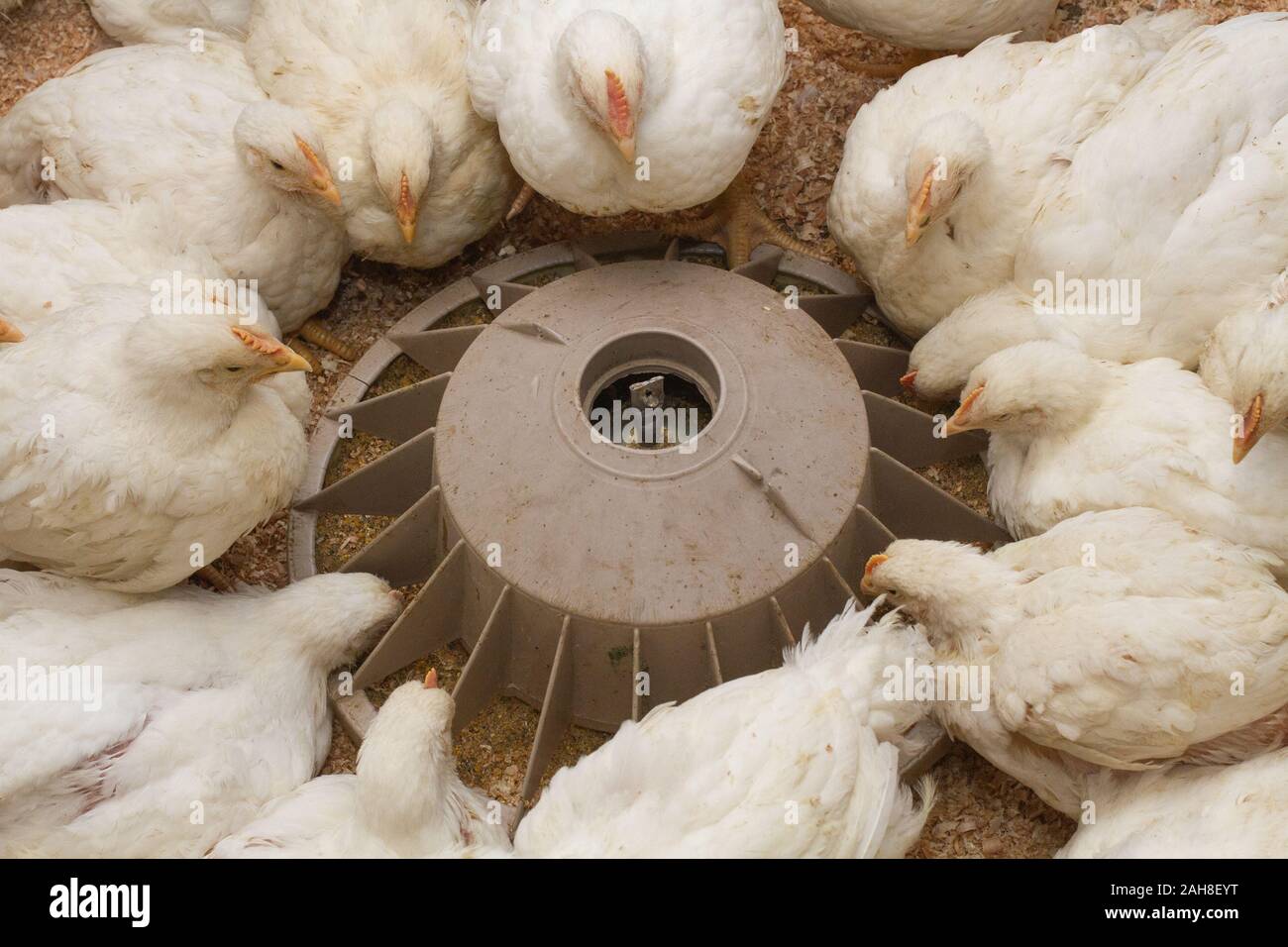When it comes to maintaining optimal chicken husbandry, one of the most important elements is providing your chickens with the best food possible. By selecting the right chickens food, you can ensure that your chickens remain healthy and productive. This article will discuss the different types of chickens food available, as well as the benefits of each option, so that you can make the best choice for your chickens.
Types of Food for Chickens
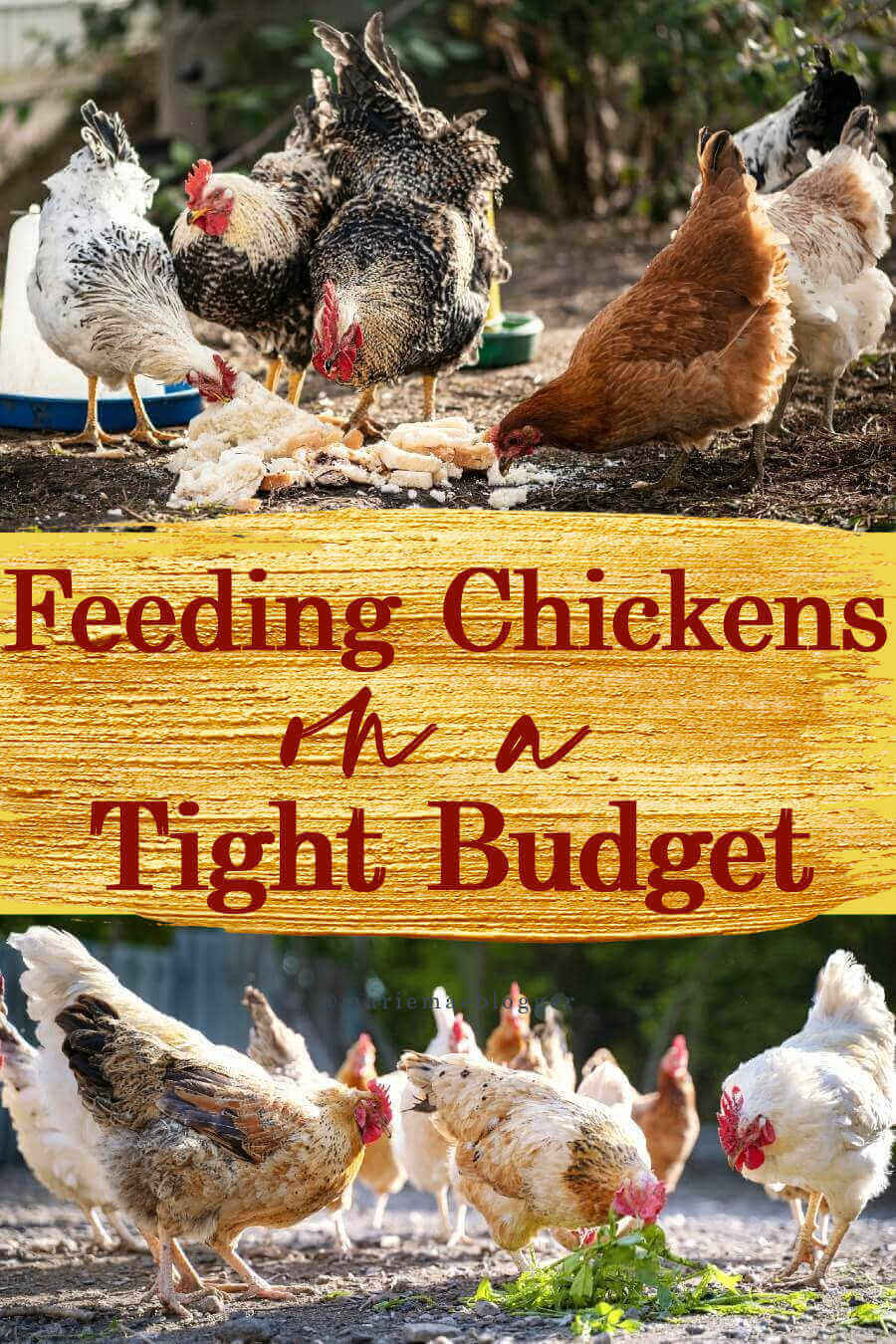
Grains
Grains such as wheat, oats, millet, barley, and corn are excellent feed sources for chickens. They provide a source of carbohydrates, which is vital for energy production, and are a great source of essential vitamins and minerals.
Vegetables
Fresh vegetables are a great source of vitamins and minerals for chickens. Carrots, lettuce, spinach, beans, and peas are all great options for feeding chickens.
Protein Sources
Chickens need a high-quality source of protein to stay healthy. Protein sources such as mealworms, crickets, and cooked eggs are excellent choices for chickens.
Fruits
Fruits such as apples, oranges, and berries are a great source of vitamins and minerals for chickens. They provide a healthy treat for chickens, and can help to keep them entertained.
Kitchen Scraps
Kitchen scraps such as vegetable peelings and stale bread can also be a great source of food for chickens. However, it is important to remember to avoid giving chickens spoiled food, as this can make them ill.
Commercial Chicken Feed
Commercial chicken feed is a great way to ensure that your chickens are getting the right balance of nutrients. It can also be a convenient way to provide your chickens with their daily food requirements.
Benefits of Feeding Different Types of Food to Chickens
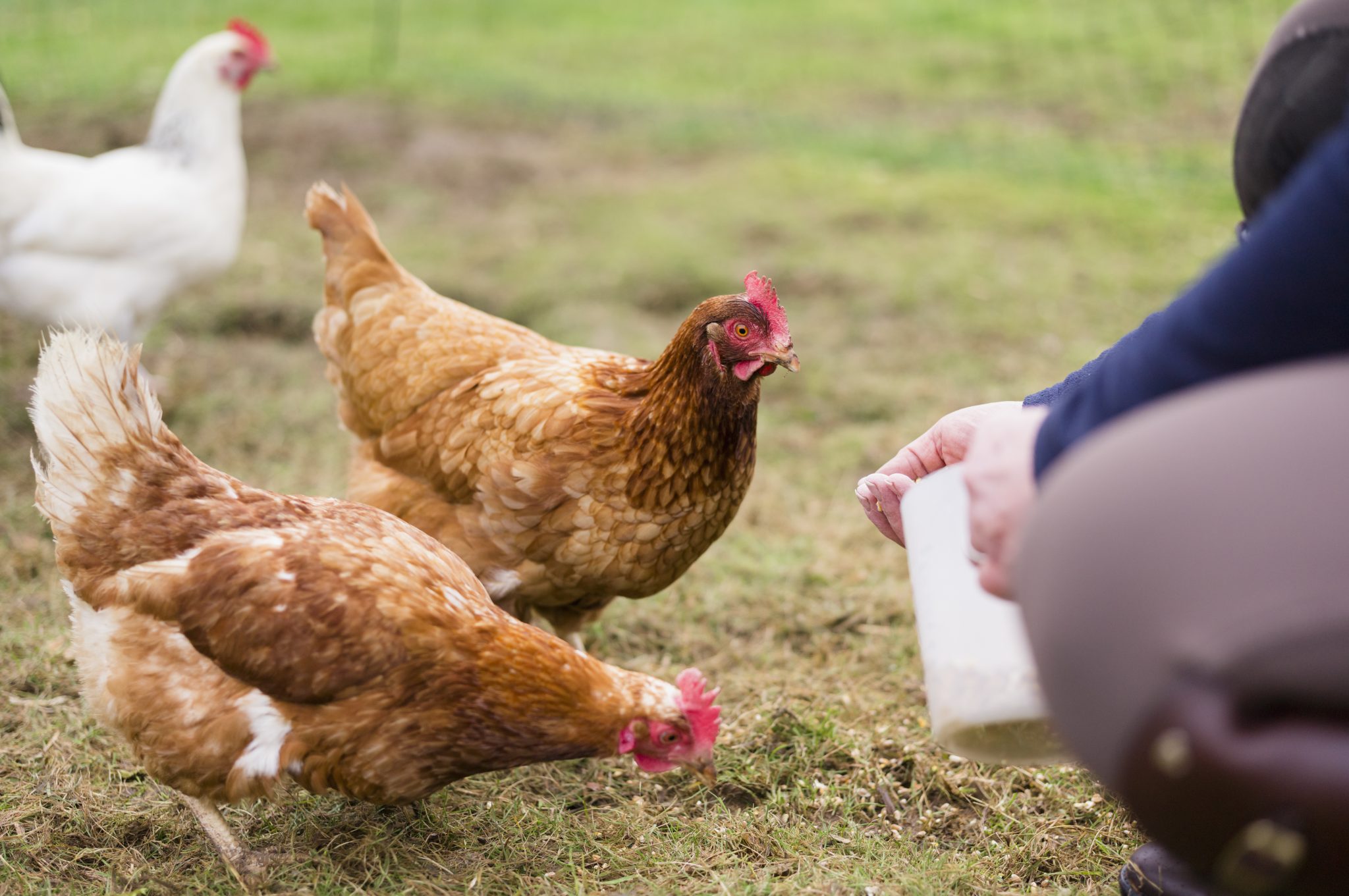
Feeding chickens a variety of different types of food has multiple benefits for the health and well-being of your chickens. Different types of food offer varying levels of essential vitamins and minerals, which will help keep your chickens healthy and productive. This can have a direct impact on their egg-laying capacity and their general health. Additionally, feeding chickens a variety of food keeps them from becoming bored with their diets, and can help prevent them from developing food allergies and other health issues.
Essential Nutrients: Different types of food can provide chickens with different types of essential vitamins and minerals. For example, grains, seeds, and greens can provide chickens with important B vitamins, while insects can provide them with important protein and fat. Feeding chickens a variety of different food ensures they get all the nutrients they need to stay healthy and productive.
Preventing Boredom: Chickens can get bored with their diets, so it is important to feed them a variety of different food. This can help keep them engaged and interested in their food and can help prevent them from becoming bored and unproductive. This can have a direct impact on their egg-laying capacity and their general health.
Preventing Allergies: Feeding chickens a variety of different types of food can help prevent them from developing food allergies and other health issues. By introducing different types of food into their diet, chickens can become accustomed to the various types of food and this can help prevent them from developing allergies or other health issues.
When it comes to what is the best thing to feed chickens, the answer is: a variety of different types of food. Feeding chickens a variety of different food offers multiple benefits, including providing them with essential vitamins and minerals, preventing boredom, and preventing allergies and other health issues. This can help keep your chickens healthy and productive, and can ensure that they are getting the nutrients they need for optimal chicken husbandry.
Factors to Consider When Feeding Chickens
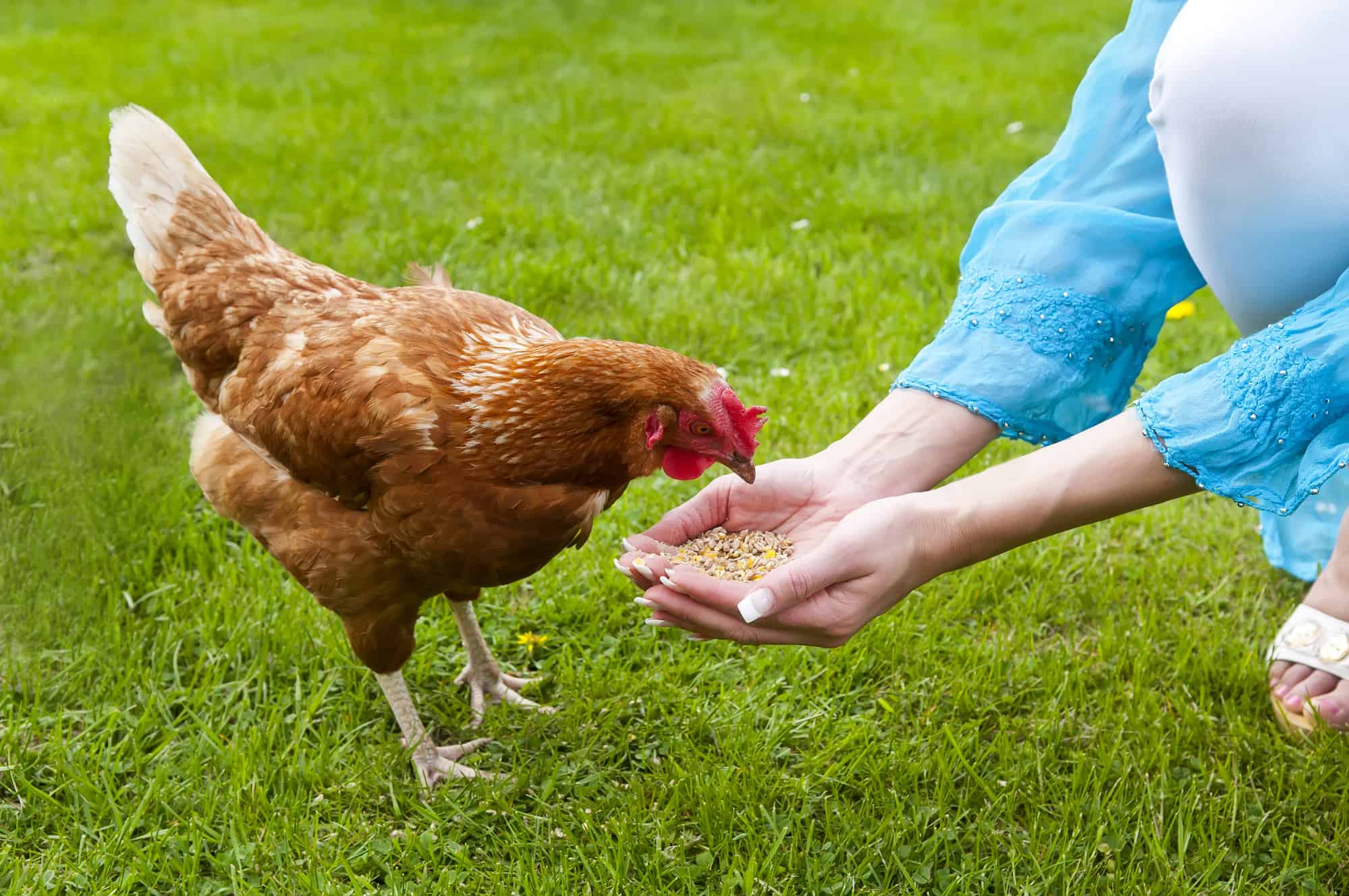
Choosing the right food for chickens is essential for optimal chicken husbandry. Here are some important factors to consider when deciding what food to feed your chickens:
- Nutritional Value: Choose a food that is nutritionally balanced and contains the necessary vitamins and minerals for a healthy flock. Avoid foods with fillers or artificial additives that can be detrimental to the health of your chickens.
- Protein Content: Protein is essential for laying hens and growing chicks, so make sure the food contains at least 16-18% protein. The protein content should also include essential amino acids such as lysine and methionine.
- Calcium Content: Laying hens need extra calcium to form eggshells. If your flock is made up of layer hens, make sure the food you choose has enough calcium. The calcium content should be at least 3-4%.
- Ingredients: Check the ingredients list to make sure the food contains only healthy and natural ingredients. Avoid any food with artificial colors, flavors or preservatives.
- Type of Food: The type of food you choose for your chickens can depend on the age and size of your flock. For example, a layer feed is best for laying hens, while a starter feed is best for chicks.
When it comes to feeding chickens, it’s important to choose a high-quality food that meets the nutritional needs of your flock. By considering the factors above, you can ensure your chickens get the best nutrition for optimal health.
Common Mistakes to Avoid When Feeding Chickens
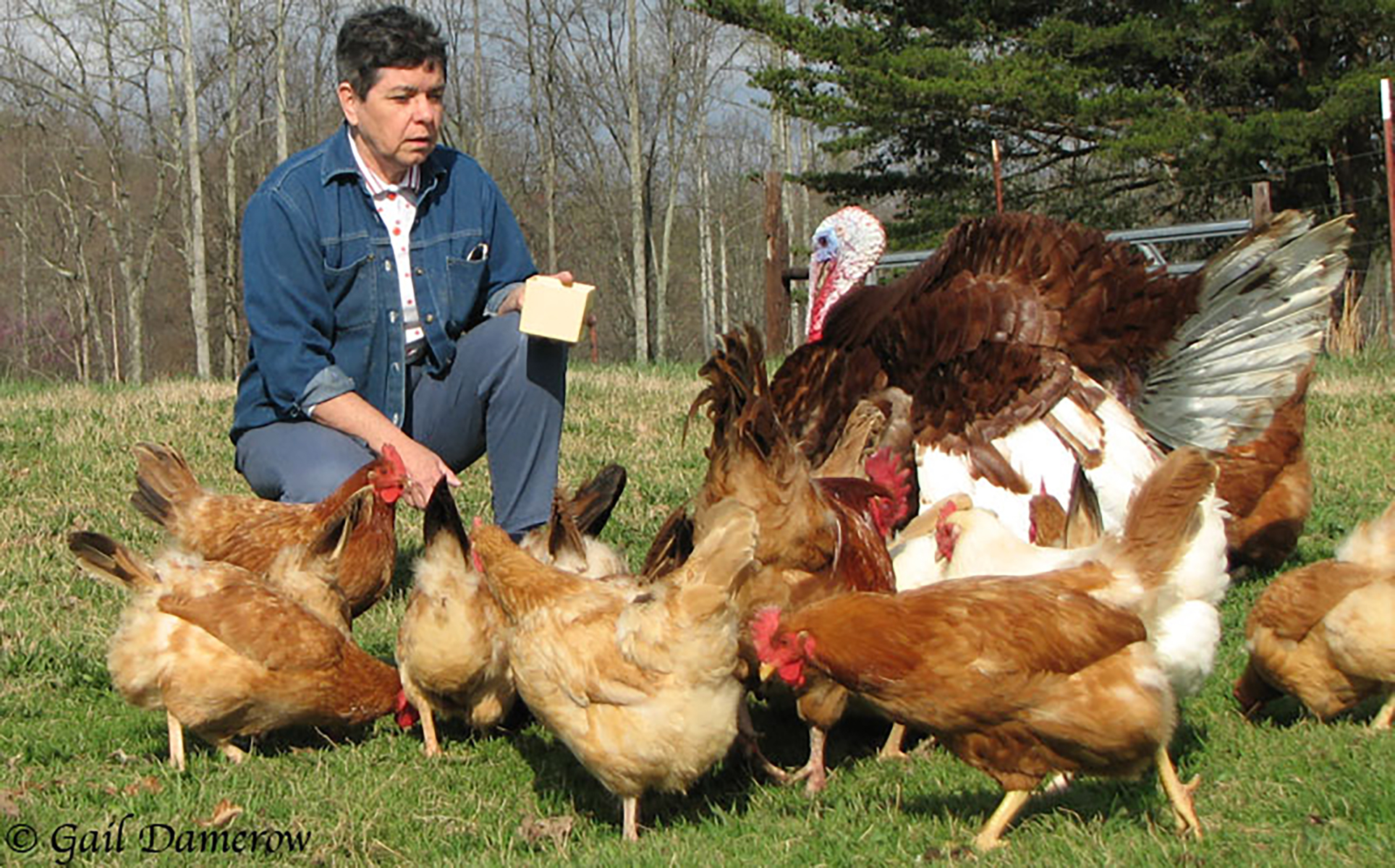
Incorrect Diet: Chickens need a balanced diet to stay healthy. Feeding them too much protein or not enough can lead to health problems. Be sure to feed your chickens a high-quality diet that is formulated for their specific breed and age.
Not Providing Enough Variety: Different types of chickens have different dietary needs. Feeding a single type of food can lead to nutrient deficiencies. Make sure to provide your chickens with a variety of foods, including fruits, vegetables, and grains.
Overfeeding: Too much food can lead to obesity and other health problems. Feed your chickens only as much as they can eat in one sitting.
Underfeeding: Not providing enough food can cause your chickens to become malnourished, leading to health problems. Make sure to provide your chickens with enough food to meet their nutritional needs.
Feeding Spoiled Food: Spoiled food can make your chickens sick, so always check for spoilage before feeding it to your chickens.
Feeding Pesticide-Treated Foods: Pesticide-treated foods can be toxic to chickens. Be sure to only feed your chickens organic or pesticide-free foods.
Not Cleaning Feeders: Dirty feeders can lead to the spread of disease and parasites. Clean your chickens’ feeders regularly to keep your flock healthy.
Appropriate Amounts of Food to Feed Chickens

In order to ensure optimal chicken husbandry, it is important to feed chickens the right amount of food. The amount of food should be based on the size, age, and health of the chickens. For example, young chickens need more food than adult chickens. In general, chickens should be fed 1/4 to 1/2 cup of feed per bird per day. This should be divided into two meals, one in the morning and one in the evening.
If chickens are free-ranging, they will get much of their food from foraging, so the amount of feed provided can be decreased. If chickens are kept in a coop, make sure there is always plenty of food in the feeder.
If chickens are kept in a run, ensure that the feeder is large enough to accommodate all the chickens and that it is filled with the correct amount of food. If chickens are overfed, they may become overweight and may be more susceptible to health problems.
It is also important to provide chickens with a balanced diet full of vitamins and minerals. A quality commercial feed should contain the necessary vitamins and minerals that chickens need. Additionally, chickens can be supplemented with treats such as mealworms, fruits, and vegetables.
By providing chickens with the right amount of food and a balanced diet, it is possible to achieve optimal chicken husbandry.
Proper Storage of Food for Chickens
- Store food in airtight containers – Food should be stored in airtight containers that are free of moisture and pests. This will help to preserve the nutrients in the food and keep it fresh for longer. It will also help to reduce contamination.
- Keep food in a cool, dry place – Food stored in a cool, dry place will last longer and is less likely to spoil. This will help to ensure the quality and freshness of the food for your chickens.
- Avoid direct sunlight – Direct sunlight can cause food to spoil quickly, so it’s important to keep food away from direct sunlight. This will help to preserve the nutrients in the food and make it last longer.
- Protect food from pests – Pests can contaminate food and make it unsafe for your chickens, so it’s important to protect food from pests. This can be done by using airtight containers, using air-tight lids, and keeping food away from areas where pests may be present.
- Rotate food regularly – It’s important to rotate food regularly to ensure that your chickens are getting the most nutritious food possible. Rotating food regularly will help to reduce waste and keep your chickens healthy.
Frequently Asked Questions
What are the Essential Nutrients that Chickens Need in their Diets?
Chickens require a nutrient-rich diet to stay healthy and productive. Essential nutrients for chickens include proteins, carbohydrates, fats, vitamins and minerals. Protein is needed for growth and development, while carbohydrates provide energy. Fats are important for energy, insulation, and healthy skin and feathers. Vitamins and minerals support the immune system, bone development and egg production. A balanced diet of grains, nuts, seeds and greens, supplemented with oyster shell for calcium, is important for optimal chicken husbandry.
What is the best way to ensure that chickens are getting the right amount of food?
Feeding chickens the right amount of food is essential for optimal health and well-being. To ensure that chickens are getting the right amount of food, the following measures should be taken:
- Provide a balanced diet: A balanced diet is essential for chickens. The diet should include a variety of grains, greens, and insects. Scratch grains can be provided as treats, but should not make up the bulk of a chicken’s diet.
- Provide fresh water: Chickens need access to fresh, clean water at all times. Water should be changed daily to ensure that it is free of bacteria and other contaminants.
- Regularly monitor food intake: The amount of food consumed should be regularly monitored to ensure that chickens are getting the proper amount of nutrition. Feed should be adjusted accordingly to ensure that chickens are getting enough to eat.
- Provide a variety of food: To ensure that chickens are getting the nutrients they need, a variety of foods should be offered. This includes a variety of grains, greens, and insects.
- Provide treats in moderation: Treats, such as scratch grains, should be provided in moderation to avoid overfeeding. Treats should not make up the bulk of a chicken’s diet.
By following these measures, chickens can be ensured of getting the right amount of food for optimal health and well-being.
Benefits of a Balanced Diet for Chickens
Health: A balanced diet helps to maintain the health of chickens, as they get all the essential nutrients they need. Without a balanced diet, chickens can suffer from nutritional deficiencies, leading to stunted growth and poor health.
Production: A balanced diet helps to boost egg production, as the chickens are receiving all the necessary nutrients they need.
Taste: A balanced diet makes chickens’ eggs taste better, as chickens are getting the right mix of proteins, carbohydrates, and micronutrients.
Weight: A balanced diet helps to keep chickens at their ideal weight, as they get the right amount of calories and nutrients.
What types of food should be avoided when feeding chickens?
- Fried food – Fried food should be avoided as it can be difficult for chickens to digest and can cause health problems.
- Spoiled food – Spoiled food can be toxic to chickens and can lead to illness. Any food that is moldy or has a strange odor should be discarded.
- Raw eggs – Raw eggs can be a source of Salmonella bacteria which can make chickens sick.
- Citrus fruits – Citrus fruits are too acidic for chickens and can cause an upset stomach.
- Some grains – Some grains, such as wheat and barley, can cause digestive problems in chickens. Stick to grains such as corn, oats, and millet.
Are there any special considerations to keep in mind when feeding chickens?
Nutritional Requirements: Chickens require a balanced diet that includes carbohydrates, proteins, fats, vitamins, minerals, and water. It is important to feed chickens food that is specifically formulated for chickens and not for other animals, such as dogs or cats.
Protein: Protein is essential for growth and development of chickens. A chicken’s diet should consist of 16-20% protein from sources such as grains, legumes, or fish meal.
Fats: Fats are a source of energy and should make up 4-8% of a chicken’s diet. Fats also help to absorb fat-soluble vitamins, and provide essential fatty acids.
Vitamins and Minerals: Vitamins and minerals are essential for healthy growth and development in chickens. Certain vitamins and minerals can be found in natural sources such as grains and insects, but a complete and balanced vitamin and mineral supplement should be added to a chicken’s diet.
Fresh Water: Fresh, clean water should be provided to chickens at all times. Water should be changed daily to prevent the accumulation of bacteria and should be available in multiple locations to ensure that all chickens can access it.
Food Storage: Food should be stored in a cool, dry place away from rodents and other pests. It is also important to keep feeders and waterers clean and free of debris to prevent contamination.
Conclusion
Chickens need a balanced diet to stay healthy and produce the best eggs. A diet should include a variety of grains, greens, and insects. Protein-rich foods like beans, peas, and mealworms should also be included in the diet. Additionally, it is important to rotate the types of food given to chickens to ensure they receive the necessary nutrients and minerals. Offering a variety of treats, such as fruits and vegetables, can also keep chickens healthy and happy. By providing the best food for chickens, optimal chicken husbandry can be achieved.
